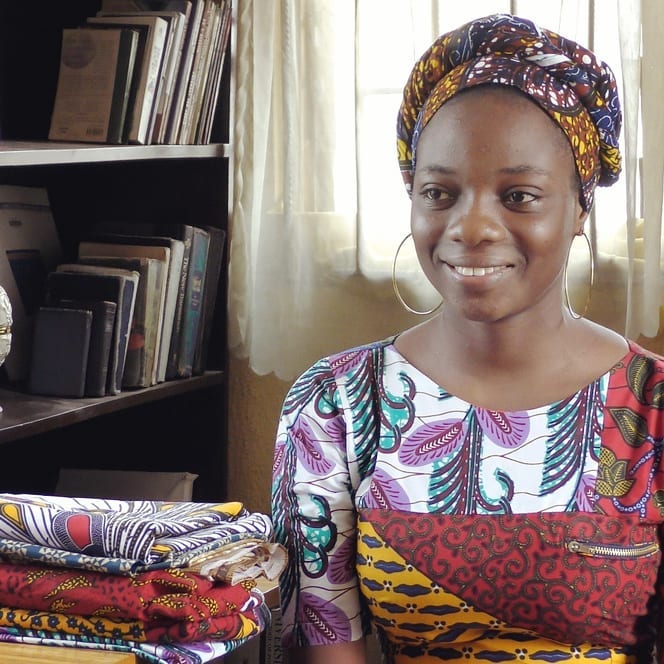Interview conducted: 2021
This interview with Seun Kuti during our shoot of the film Voices Uprising will throw a new light on issues that we might never reflect about.
Meet Seun Kuti:
Seun Kuti is a Nigerian musician, singer and the youngest son of Afrobeat pioneer Fela Kuti. He has spent most of his life preserving and extending his father’s political and musical legacy as the leader of his father’s former band Egypt 80. Seun Kuti has been a strong voice for the liberation of the Nigerian people. Since the EndSars protest in 2020, he has consistently educated the public using weekly Instagram videos and talks.
- Seuns Official Website – https://www.seunkuti.net, where you can get merch and check out his touring schedules.
Joadre: What are the issues affecting Nigeria?
Seun: I. think, the most pertinent of the issues affecting Nigeria is the lack of representation of the Nigerian people. The fact that nobody represents the Nigerian people. Everybody in power represents Nigeria. Nigeria and the Nigerian people are two different entities. Being that Nigeria itself was the creation of outsiders. It was not created for the benefit of the people trapped within its borders.
Joadre: A couple of years ago, Nigeria celebrated 60 years of independence, and some celebrated the arm forces. How do you reflect on this, considering the state of things?
Seun: When Nigeria was created, it was created to exploit the people’s labour and resources. And nothing has been done since the 60 years we have had our so-called independence to reverse or change this Nigerian nation’s characteristics or the monster’s habit. Everything we have achieved has been achieved without and, at most times, against our military, who are always in support of our oppressors – be it our colonial oppressors or our downpressors that we have today.
So what are we saying – celebrate our armed forces? When we know that, to fight for our independence in this country, we fought against our military institutions, which supported white men in killing their fellow Africans because of their salary and position. It is this same kind of people that run our country. People that are ready to kill us for white people so that they can collect their salary and position. That is still what they fight for today – Salary and position.
Joadre: Looking from a global context, for example, access to education, capital, and care. How are Africans impacted?
Seun: My friends in America say banks do not give them loans because they are owned by white people, so the banks are racist. But I am like, look, the bankers are not racist. It is the institution of banking that is racist. Same thing with security. The way they kill us here is how they kill black people in Europe and America. Go to any bank here as an African and see if you can get loans. Africans can’t get loans in our banks here, but they are all black-owned. Just the way it is impossible to get bank loans internationally. It is not the ownership alone that matters; it is the institution of banking itself that was created to exclude African people.
Joadre: What about Education?
Seun: It is the same for education! If you look deeper, it is the same discrimination, be it in our own country or abroad. Our access to education is just as limited because the “academy” is nothing other than to exclude ideas. It is how some ideas are accepted, and others are excluded. So it is all the same game that we, as motherland people, live under institutions that are inherently against us. Even worse, we live under leadership unwilling to confront this significant problem that black people face.
Joadre. Some time ago, you initiated the project – Power Mic. Tell us your thoughts and idea behind it.
Seun: The Power Mic idea was about creating a new way of politics – the people’s way. What most people do is quite elitist. We get a venue where we are comfortable, we announce our program, we determine the topic, the scope, and the program, and then we invite the public to have the illusion of participation when the agenda is already decided. So Power Mic was to take the meeting to the people. Ask them what their issues are. If we can establish it properly, it can create our manifesto and give a solid voice for the people.
It was a long conversation with Seun and so much food for thought. We have broken them down into several articles making the Seun Voices Uprising series. We want to raise awareness and mobilise people to create a better world. Share this article with your network. Subscribe to our Newsletter here to know when we release the next article under this series with Seun Kuti. Read more on our Voices Uprising series with Seun Kuti.
Watch Seun Kuti in the documentary film Voices Uprising
Synopsis: A protest against police brutality ignites a debate around complex legacies that plague Nigeria and how to overcome them.
Film trailer
Running time: 54 minutes, 38″ // Languages spoken: English, Yoruba, Pidgin English, German // Subtitle: English.
Find Where To Watch The Film > https://voicesuprising.com
Other articles from Film protagonists:
- Go Back To The Drawing Board > with Dr Habibat Oladosu-Uthman
- Pre-colonial Economic Structures Impact Africa > With Olaf Bernau
- Why Is This Happening > With James Amuta
- A talk With Obianuju Iloanya >
- The Civic Aspect Must Work > With Osai Ojigho
Remember to Connect with us, and get our app.
We created our one-stop digital incubator app to bridge knowledge and service discrepancies for African students and Savvy entrepreneurs looking to start a business. Get the app (Android version) here. For IOS users, a web app is available here at https://tribe.joadre.com. Sign up for our Newsletter here to get consistent resources via email. If you want to contact us, use our contact form or consult us through the app.
Thank you for reading to the end.
Cheers
Joadre




